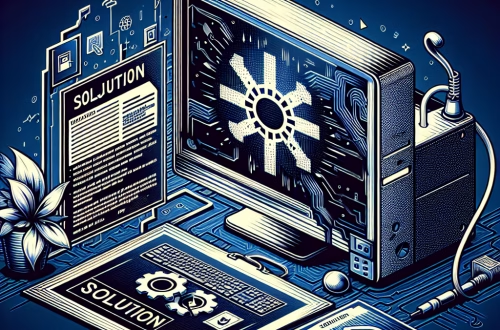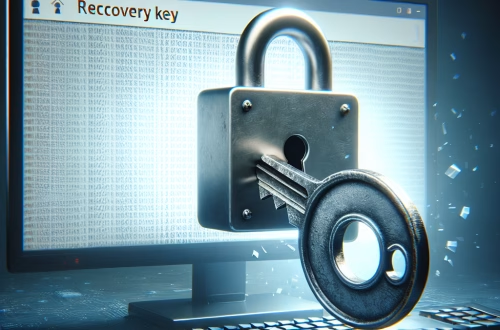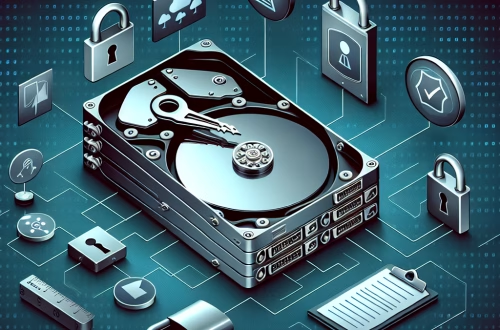bitlocker usb drive windows 11 Explained
BitLocker USB Drive in Windows 11 refers to the process of encrypting a removable USB drive using BitLocker Drive Encryption, a security feature integrated into the Windows operating system. When enabled, BitLocker encrypts the data on the USB drive, rendering it inaccessible without the correct authentication method, such as a password or recovery key. This feature is commonly used to protect sensitive data on portable storage devices, ensuring that unauthorized users cannot access the data if the drive is lost or stolen.
What This Means for You
- Immediate Impact: If your USB drive is BitLocker-encrypted and you forget the password or lose the recovery key, the drive will be inaccessible, preventing you from retrieving your data.
- Data Accessibility & Security: Without proper authentication, your encrypted data remains secure but inaccessible. Always store your recovery key in a secure location, such as a Microsoft account or a printed copy.
- System Functionality & Recovery: If you encounter issues with BitLocker on your USB drive, you may need to use advanced troubleshooting methods, such as the
manage-bdecommand or a recovery environment, to regain access. - Future Outlook & Prevention Warning: Regularly back up your recovery key and ensure you understand BitLocker’s encryption process to avoid data loss or permanent inaccessibility of your USB drive in the future.
bitlocker usb drive windows 11 Solutions
Solution 1: Using the BitLocker Recovery Key
If you’re locked out of your BitLocker-encrypted USB drive, the recovery key is your primary method of regaining access. Follow these steps:
- Insert the USB drive into your Windows 11 computer.
- When prompted, select “More Options” and then “Enter Recovery Key.”
- Type the 48-digit recovery key exactly as it appears in your backup location (e.g., Microsoft account, printed copy).
- If successful, the drive will unlock, and you can access your data.
Solution 2: Disabling BitLocker on the USB Drive
If you no longer need encryption, you can disable BitLocker on the USB drive:
- Open “This PC” and locate your USB drive.
- Right-click the drive and select “Manage BitLocker.”
- Choose “Turn off BitLocker” and confirm the action.
- Wait for the decryption process to complete.
Solution 3: Using the Command Prompt
For advanced users, the manage-bde command can help troubleshoot BitLocker issues:
- Open Command Prompt as an administrator.
- Use the command
manage-bde -statusto check the encryption status of the USB drive. - To unlock the drive, use
manage-bde -unlock [DriveLetter]: -RecoveryKey [RecoveryKey]. - If decryption is needed, use
manage-bde -off [DriveLetter]:.
Solution 4: Data Recovery Options
If all else fails, specialized data recovery tools may help retrieve files from a BitLocker-encrypted USB drive. Use reputable software designed to handle encrypted drives, but be aware that success is not guaranteed.
People Also Ask About
- How do I find my BitLocker recovery key? Check your Microsoft account, email, or printed backup for the 48-digit key.
- Can I recover data from a BitLocker-encrypted USB drive without the key? No, the recovery key or password is mandatory for decryption.
- Why is BitLocker asking for a recovery key on my USB drive? This happens when the drive’s authentication method fails due to hardware changes or corruption.
- How do I enable BitLocker on a USB drive in Windows 11? Right-click the drive in “This PC,” select “Turn on BitLocker,” and follow the prompts.
- Is it safe to disable BitLocker on my USB drive? Yes, but ensure the drive is no longer used for sensitive data.
Other Resources
For more detailed guidance, refer to the official Microsoft documentation on BitLocker Drive Encryption for Windows 11.
How to Protect Against bitlocker usb drive windows 11
- Back up your BitLocker recovery key to multiple secure locations, such as a Microsoft account, a USB drive, and a printed copy.
- Regularly test your recovery key to ensure it works correctly.
- Use a strong password for your BitLocker-encrypted USB drive to enhance security.
- Enable automatic unlock for your USB drive if it’s frequently used on the same computer.
- Monitor BitLocker status using the
manage-bdecommand to detect issues early.
Expert Opinion
BitLocker USB Drive encryption is a powerful tool for securing portable data, but its effectiveness depends on proper key management and user awareness. Regularly backing up recovery keys and understanding troubleshooting methods are essential to avoid data loss.
Related Key Terms
- BitLocker recovery key not working
- Encrypt USB drive Windows 11
- BitLocker automatic unlock issue
- manage-bde command prompt
- BitLocker drive encryption stuck
- TPM error BitLocker
- Windows 11 BitLocker fix
*Featured image sourced by Pixabay.com





